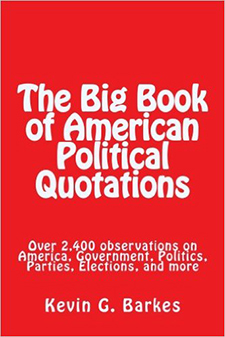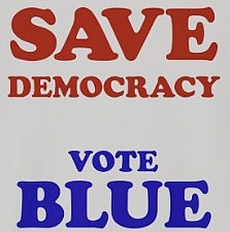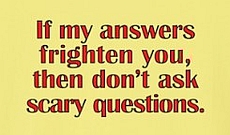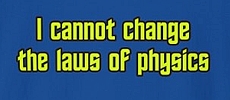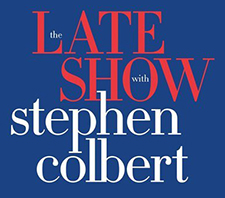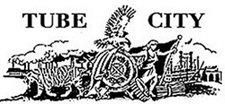Robert Francis Kennedy (November 20, 1925 - June 6, 1968), commonly known as "Bobby" or by his initials RFK, was an American politician, who served as a Senator for New York from 1965 until his assassination in 1968. He was previously the 64th U.S. Attorney General from 1961 to 1964, serving under his older brother, President John F. Kennedy and his successor, President Lyndon B. Johnson. An icon of modern American liberalism and member of the Democratic Party, Kennedy was a leading candidate for the Democratic presidential nomination in the 1968 election. (Click here for full Wikipedia article)
-----
A revolution is coming- a revolution which will be peaceful if we are wise enough; compassionate if we care enough; successful if we are fortunate enough- But a revolution which is coming whether we will it or not. We can affect its character; we cannot alter its inevitability.
About one- fifth of the people are against everything all the time.
Are we like the God of the Old Testament, that we in Washington can decide which cities, towns, and hamlets in Vietnam will be destroyed? Do we have to accept that? I don't think we do. I think we can do something about it.
Each time a man stands up for an ideal, or acts to improve the lot of others, or strikes out against injustice, he sends forth a tiny ripple of hope, and crossing each other from a million different centers of energy and daring those ripples build a current which can sweep down the mightiest walls of oppression and resistance.
Every dictatorship has ultimately strangled in the web of repression it wove for its people, making mistakes that could not be corrected because criticism was prohibited.
Every society gets the kind of criminal it deserves. What is equally true is that every community gets the kind of law enforcement it insists on.
Few men are willing to brave the disapproval of their fellows, the censure of their colleagues, the wrath of their society. Moral courage is a rarer commodity than bravery in battle or great intelligence. Yet it is the one essential, vital quality of those who seek to change a world which yields most painfully to change.
Few will have the greatness to bend history, but each of us can work to change a small portion of the events, and then the total- of all those acts- will be written the history of this generation.
If we must act effectively we must deal with the world as it is. We must get things done.
It is not easy to plant trees when we will not live to see their flowering. But that way lies greatness. And in search of greatness we will find it- for ourselves as a nation and a people.
It is not enough to allow dissent. We must demand it.
It is not given to us to right every wrong, to make perfect all the imperfections of the world. But neither is it given to us to sit content in our storehouses- dieting while others starve, buying eight million new cars a year while most of the world goes without shoes. We are simply not doing enough.
It is the essence of responsibility to put the public good ahead of personal gain.
It should be clear that, if one man's rights are denied, the rights of all are in danger- that if one man is denied equal protection of the law, we cannot be sure that we will enjoy freedom of speech or any other of our fundamental rights.
Just because we cannot see clearly the end of the road, that is no reason for not setting out on the essential journey. On the contrary, great change dominates the world, and unless we move with change we will become its victims.
Nations around the world look to us for leadership not merely by strength of arms, but by the strength of our convictions. We not only want, but we need, the free exercise of rights by every American. We need the strength and talent of ever American. We need, in short, to set an example of freedom for the world- and for ourselves.
Only earthbound man still clings to the dark and poisoning superstition that his world is bounded by the nearest hill, his universe ends at river shore, his common humanity is enclosed in the tight circle of those who share his town or his views and the color of his skin.
Only those who dare to fail greatly, can ever achieve greatly.
The challenge of politics and public service is to discover what is interfering with justice and dignity for the individual here and now, and then to decide swiftly upon the appropriate remedies.
The cruelties and the obstacles of this swiftly changing planet will not yield to obsolete dogmas and outworn slogans. It cannot be moved by those who cling to a present which is already dying, who prefer the illusion of security to the excitement and danger which comes with even the most peaceful progress.
The enlargement of liberty for individual human beings must be the supreme goal and the abiding practice of any Western society.
The essential humanity of men can be protected and preserved only where government must answer- not just to the wealthy, not just to those of a particular religion, or a particular race, but to all its people.
The future does not belong to those who are content with today, apathetic towards common problems and their fellow man alike, timid and fearful in the face of new ideas and bold projects.
The problem of power is how to achieve its responsible use rather than its irresponsible and indulgent use- of how to get men of power to live for the public rather than off the public.
The road toward equality of freedom is not easy, and great cost and danger march alongside us.
Violence breeds violence, repression brings retaliation, and only a cleansing of our whole society can remove this sickness from our soul.
We can perhaps remember, if only for a time, that those who live with us are our brothers, that they share with us the same short moment of life; that they seek, as do we, nothing but the chance to live out their lives in purpose and in happiness, winning what satisfaction and fulfillment they can.
We know full well the faults of our democracy- the handicaps of freedom- the inconvenience of dissent. But I know of no American who would not rather be a servant in the imperfect house of Freedom, than be a master of all the empires of tyranny.
We must continue to prove to the world that we can provide a rising standard of living for all men without the loss of civil rights or human dignity to any man.
We must recognize the full human equality of all of our people before God, before the law, and in the councils of government. We must do this, not because it is economically advantageous, although it is; not because the laws of God command it, although they do; not because people in other lands wish it so. We must do it for the single and fundamental reason that it is the right thing to do.
What has violence ever accomplished? What has it ever created? No martyr's cause has ever been stilled by an assassin's bullet. No wrongs have ever been righted by riots and civil disorders. A sniper is only a coward, not a hero; and an uncontrolled, uncontrollable mob is only the voice of madness, not the voice of reason.
What we need in the United States is not division; what we need in the United States is not hatred; what we need in the United States is not violence and lawlessness, but is love, and wisdom, and compassion toward one another, and a feeling of justice toward those who still suffer within our country, whether they be white or whether they be black.
Categories: Quotes of the day, Robert F. Kennedy
![]() Subscribe
[Home]
[Commentwear]
[E-Mail KGB]
Subscribe
[Home]
[Commentwear]
[E-Mail KGB]
Older entries, Archives and Categories Top of page


